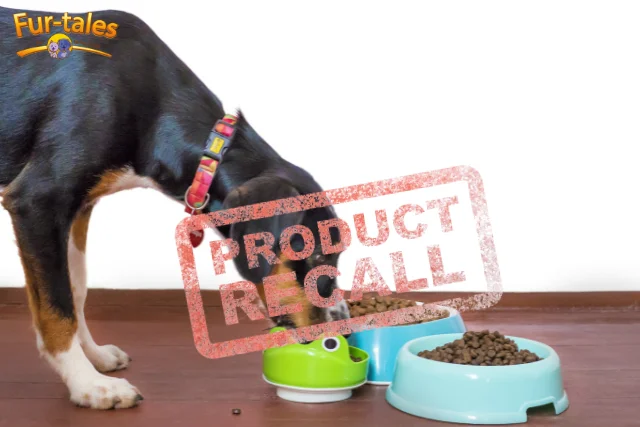
FDA Issues Urgent Warning on Darwin’s Natural Pet Products
In late July 2025, the U.S. Food and Drug Administration (FDA) released a consumer advisory urging pet owners to avoid feeding certain lots of Darwin’s Natural Pet Products due to contamination risks with E. coli O157:H7 and Salmonella. This warning highlights ongoing safety concerns tied to raw pet foods and underscores the importance of monitoring recalls to protect both pets and their human companions.
What Prompted the FDA Warning?
The FDA issued this advisory following test results that detected E. coli O157:H7 and Salmonella in specific batches of Darwin’s raw pet food. Both pathogens are known to cause serious illness. In pets, symptoms can include vomiting, diarrhea, lethargy, and dehydration. For humans, especially children, elderly individuals, and those with compromised immune systems, exposure can lead to severe gastrointestinal illness and, in rare cases, life-threatening complications.
Which Products Are Affected?
The advisory covers certain lots of Darwin’s Natural Pet Products raw food formulations for dogs and cats. Although the FDA announcement specifies the exact lot codes and expiration dates, pet owners should immediately stop feeding any Darwin’s products if they cannot verify the safety of their current inventory. Consumers are encouraged to check packaging details carefully and compare them against the recall list on the FDA’s website [1].
Why Are Raw Pet Foods at Higher Risk?
Raw pet foods, while popular among owners seeking “natural” diets, inherently carry a greater risk of bacterial contamination. Unlike kibble or canned foods that undergo heat treatment, raw formulations may harbor harmful pathogens. The FDA has repeatedly cautioned pet owners about this risk, emphasizing safe handling practices, such as washing hands after feeding and sanitizing food preparation areas.
Health Risks for Pets and Humans
Both E. coli O157:H7 and Salmonella pose serious health risks:
- For Pets: Symptoms include diarrhea (sometimes bloody), fever, abdominal pain, and reduced appetite. Severe infections can lead to dehydration or systemic illness requiring veterinary care.
- For Humans: Contact with contaminated pet food, pet bowls, or even a pet’s saliva can cause illness. Children and immunocompromised individuals are particularly vulnerable to infection, which can result in kidney damage or severe dehydration if untreated.
Steps Pet Owners Should Take
If you have purchased Darwin’s Natural Pet Products recently, follow these precautions:
- Check Lot Numbers: Compare the lot codes on your packaging with those listed in the FDA advisory. If you cannot confirm safety, err on the side of caution and discard the product.
- Practice Safe Disposal: Place recalled products in sealed bags and dispose of them in secure trash containers where other animals cannot access them.
- Clean and Sanitize: Thoroughly clean any surfaces, bowls, or storage containers that may have come into contact with the affected food using hot, soapy water and disinfectant.
- Monitor for Symptoms: Watch pets closely for signs of illness, including vomiting, diarrhea, or lethargy. If symptoms appear, contact your veterinarian immediately.
- Seek Medical Advice for Humans: If household members develop gastrointestinal symptoms after handling the recalled food, consult a healthcare provider.
How to Stay Updated on Pet Food Recalls
Pet owners can subscribe to FDA alerts or regularly check the agency’s website for updates on recalls and advisories. Being proactive about monitoring these notices helps prevent accidental exposure to contaminated products.
Broader Implications for Pet Food Safety
The Darwin’s advisory is not the first involving raw pet diets. Over the years, multiple recalls have highlighted the challenges of ensuring bacterial safety in minimally processed foods. As the popularity of raw diets continues to grow, experts urge consumers to weigh the benefits against potential risks and consider cooked or commercially balanced alternatives.
FAQs
1. What symptoms should I look for in my pet if they ate the recalled food?
Look for diarrhea (sometimes bloody), vomiting, fever, decreased appetite, or lethargy. Seek veterinary care promptly if symptoms develop.
2. Can humans get sick from touching contaminated pet food?
Yes. Both E. coli and Salmonella can spread to humans through handling contaminated food, surfaces, or even a pet’s saliva.
3. How do I safely handle raw pet food in the future?
Wash hands thoroughly after feeding, disinfect all surfaces, avoid cross-contamination with human food, and store raw pet food separately in sealed containers.
4. Is all raw pet food dangerous?
Not all raw pet food is contaminated, but it does carry higher risks. Always buy from reputable sources and stay updated on recalls.
5. Where can I find official recall information?
Visit the FDA’s animal veterinary advisories page for the most current information on pet food recalls [1].
Image source: AI
Sources:
